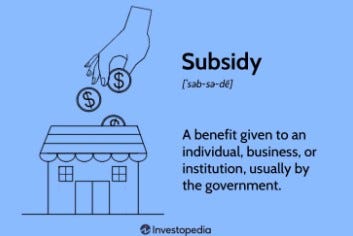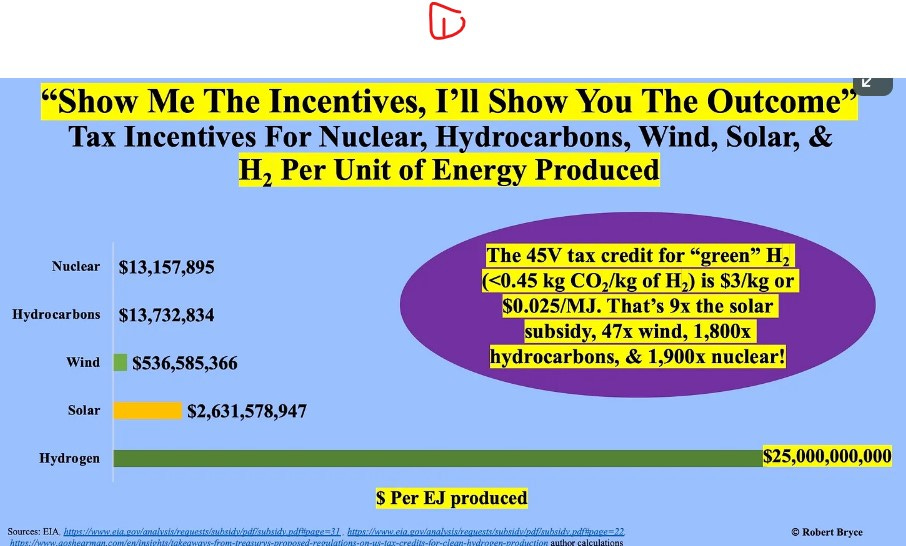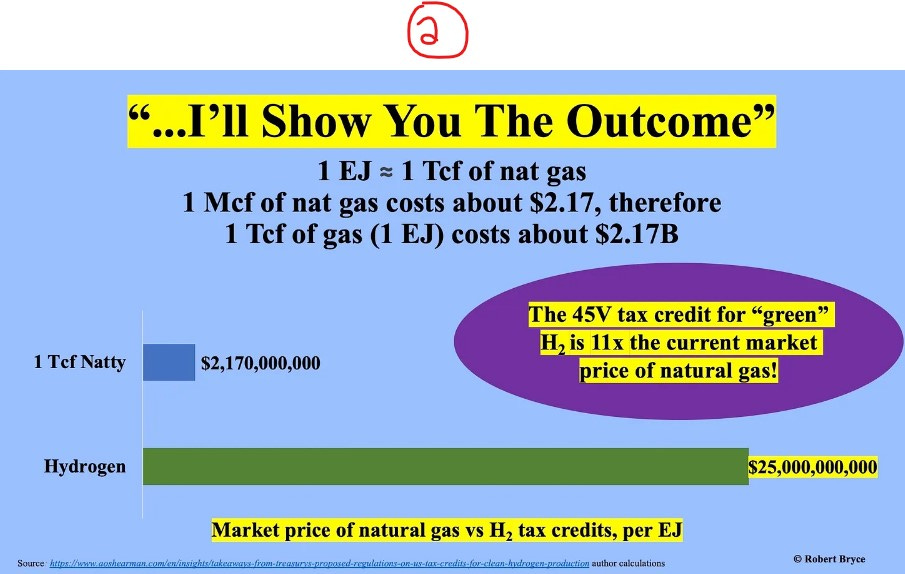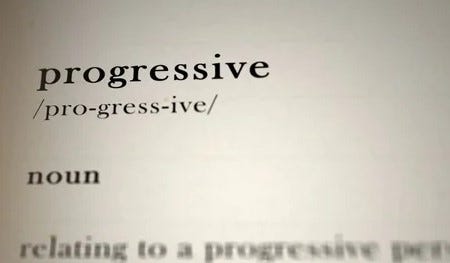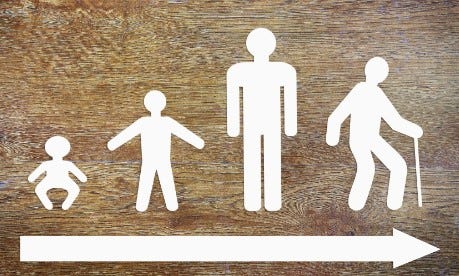Show me the incentives, and I'll show you the outcome. Define: Progressive. What do you think: should the government be responsible for "cradle to grave" care?
Show me the incentives, and I'll show you the outcome.
That saying above is from the late Charlie Munger, the former chairman of Berkshire Hathaway and it's quoted near the beginning of the Robert Bryce Substack below.**
I've written in the past about using hydrogen as a "clean" alternative to other combustion fuels such as natural gas. The thinking goes that we can use the combustion of hydrogen (which only results in water when the combustion is complete) to run vehicles, heat homes, operate fuel cells to make electricity, and so on without the greenhouse gas problems inherent in combustion of hydrocarbons.
Except, and this is why clean is in quotes, this is only true if the hydrogen is generated by a process that doesn't, on balance, create more greenhouse gasses in the production.
According to Mr. Bryce's article, right now the main contenders for making hydrogen are a chemical process where it's separated out of hydrocarbons (hardly a savings and certainly something environmentalists have shown an aversion to) or where you use electricity to separate it out of water., electricity generated, of course, by renewable methods so it doesn't harm the eco-consciences of environmentalists.
Right now, the Federal government (and a 2023 bill to a lesser extent -- see the bill linked below Mr. Bryce's article and note that it references "clean" hydrogen too as I have it above), is incentivizing production of hydrogen from renewables to an absurd degree.
Quoting Mr. Bryce from several different points in his article (and leaving links intact):
"Under rules published earlier this year by the Treasury Department and Internal Revenue Service, hydrogen producers can collect $3 per kilogram of hydrogen under the production tax credit if they use electricity from low- or no-carbon sources. (The exact amount is less than 0.45 kilograms of greenhouse gas per kg of hydrogen.) According to the latest figures from the Treasury Department, the PTC is the single most expensive energy-related tax expenditure in the federal code. Between 2024 and 2033, the PTC is expected to cost some $276.6 billion."
This is a little unconventional, but the second "quote" here is in screenshots 1 and 2 (which are a graphic and thus not really some text to copy over).
And the last quote (again, with links attached):
"The numbers are similarly gobsmacking when comparing hydrogen subsidies with the market price of natural gas. Natural gas prices have increased over the past week or two and now stand at about $2.17 per million Btu. Thus, the tax credit for “green” hydrogen is worth 11 times the current market price of natural gas."
So what is the upshot here? Follow the money.
Money is going BIG to hydrogen. It's also going, and has been for a bit now, to renewables (see screenshot 1 again), but LITTLE is going to nuclear. Any smart individual wanting to get those dollars from Uncle Sam is going to do exactly what a Texas company mentioned in Mr. Bryce's article is doing: building renewables and then using the electricity to generate hydrogen.
Let me wrap up with this.
Do you see a whole host of hydrogen-operated equipment sitting and rusting for want of hydrogen? I don't.
Do you see any pilot projects to use it for heating or transportation? The nearest thing I can think of is a couple demonstration busses running on fuel cells and a (now abandoned) plan by Xcel to mix it in with natural gas in ONE Colorado neighborhood.
You know what would be smarter?
Smarter policy would be to have the bars for nuclear, wind, solar, and hydrogen on the graph about the same length. Smarter policy would have this be the case until we have some production-scale pilot projects under our belts for hydrogen and nuclear.
I'd like to say that we have a better approach in Colorado, but looking at the hydrogen bill below and knowing that any and all attempts at even talking about nuclear power in this state have been summarily killed, we don't.
Ah well, at least we'll get to pay handsomely to learn how this all turns out!
**A reader sent me a link to this article and I've since had a chance to go through and read some of Mr. Bryce's other material. He writes a lot on energy policy though not necessarily with a Colorado focus. Worth a read if this is an interest.
https://leg.colorado.gov/bills/hb23-1281
Define: Progressive.
Answer via a quote from state representative Manny Rutinel (quoted in the Sun article):
“'I think it’s so clear that poverty is a policy choice and it’s a tragedy that in the wealthiest nation in the world, we still have folks that struggle to make ends meet,' said State Rep. Manny Rutinel, co-sponsor of House Bill 1288, which passed this year and created the pilot program. 'Hopefully, this takes us in a better direction.'”
Right there up front: poverty is a policy choice.
It's not an interaction. It's not a relationship between choices, strategies, and circumstances.
Nope. If you're poor it's because the government has allowed you to be (made you?) poor.
The Sun article where this quote appears is linked first below and it details the history and effect of one of Rutinel's bills passed in the last legislative session (and then signed by Polis). It is a bill forcing the Department of Revenue to set up a program and contract with a third-party to identify and then encourage eligible households to sign up for all the government bene's they can get. The bill itself is linked second below for convenience.
The history and details about the bill are what they are. We could argue whether or not any individual program is a good idea, or whether its eligibility requirements are a good idea, but the law is the law. If someone qualifies, they qualify. Until the law changes, that's the way things are. I would rather see things stay as they were (people signing up for benefits on their own, the government promoting the benefits it has), but the issue at hand is not the benefits.
It's the attitude.
Revisit Rutinel's statement and the action of this bill and think about what this says. What room is there here for individual responsibility--either as the cause of one's problems or the factor that aids in its solution?
What you see here is the opposite side of the coin from a hardcore conservative. The inverse of the statement that "all of the bad outcomes in life are solely and directly related to personal choices" is the idea that "none of the bad outcomes in life are solely and directly related to personal choices".
Neither is right. Our policy should account for human will, individuality, and choice. Our choices are molded by our circumstances and what others do, but they are also molded by what we choose to do.
Policy that doesn't respect this doesn't respect the humans it is supposed to help because it negates their agency.
https://coloradosun.com/2024/09/10/colorado-taxes-pilot-program/
https://leg.colorado.gov/bills/hb24-1288
Should the government be responsible for "cradle to grave" care? What do you think?
The post right prior to this one relates to a progressive view of government as necessary to help you live your life and a similar thought popped into my mind when reading the article linked below.
Nominally the Yampa Valley Bugle article below is about Steamboat scrambling to find money to save a local senior living community from closing. The City Council originally had in mind that they would ask voters for more money via a property tax.
Apparently, a private entity then stepped up to save the retirement home. In the grand tradition of government, the council then debated whether to continue with their tax question and were trying to figure out how to sell it to voters without the immediate need to save the elderly.
Quoting the article:
"In drafting the question, council members broadened the scope of what the funding could be used for, using the term cradle to grave to refer to both child care and eldercare services. But exactly how the money would be spent on those services was not entirely clear, and West said Tuesday that some child care leaders locally were not entirely supportive of the measure."
As such the plan is scrapped. For now. My sense from the article is that Steamboat voters can expect another "conversation" (delightful euphemism) about property taxes in 2025.
There's a lot going on here, but focus in on the effort here to provide what (and this isn't unique to Steamboat) the government calls "cradle to grave services" in keeping with the spirit of the previous post: that progressives see the government as having a necessarily intimate relationship with the lives of those living under it.
Cradle to grave could mean various things, so let's get specific here to Steamboat. In this case (unless I'm mistaken) the meaning is that the city would want to provide childcare, likely on the same campus as the elder care.
If you put that with any sort of other public assistance for children and adults, and you can start to see why it is that "cradle to grave" would be apt.
I have to admit to some ambivalence here. I don't want anyone to suffer, but is expecting this of the government the best thing, for any number of reasons (inefficiency, wanting control, making humans dependents of the state, etc.).
Probably on balance, I'd rather see this in the realm of private charities and industry.
What do you think?



